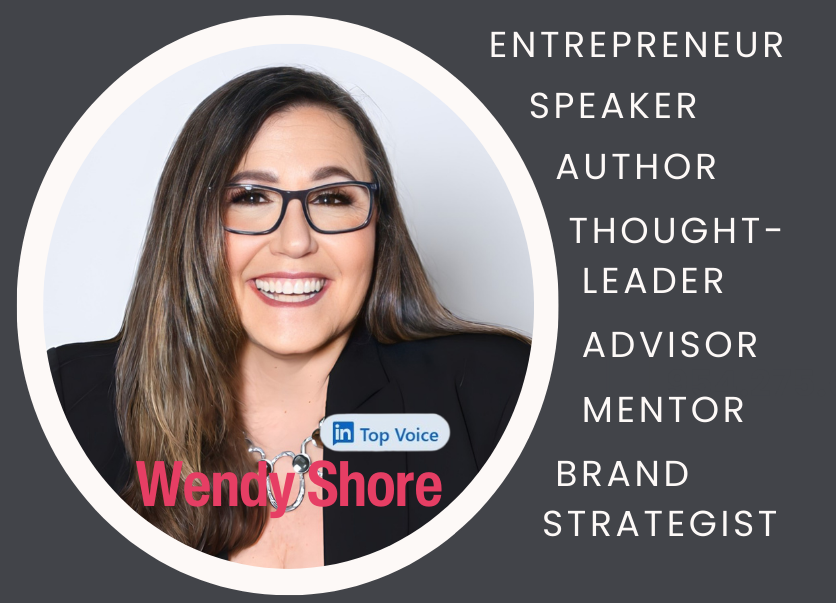
This article has been authored by Stand Out Online Member Wendy Shore, Shore Advice by Wendy Shore & Co
When I first ventured into the online world, I had little to no presence. Despite years of experience and a wealth of knowledge, cutting through the noise of self-proclaimed “gurus” and “experts” seemed nearly impossible.
It wasn’t until I started showing up consistently online and engaging on various platforms that I began to notice something interesting: I was unintentionally crafting my personal brand.
Do you really need a personal brand? Read more and decide for yourself.
Why Personal Branding Matters:
It has been said that when you invest in yourself, you’ll create a better future. Your personal brand could very well be the most important thing you invest in.
It isn’t about vanity; it’s about defining who you are, what you stand for, and how you want to be seen by others. It’s about taking control of how you’re perceived in a world where impressions are often formed long before you even walk into the room (or log into the Zoom call).
Personal branding is the key to standing out in today’s digital landscape, where everyone seems to be shouting to be heard.
Your personal brand is what people say about you when you’re not in the room. If you are not taking control and managing your brand, that means others are doing it for you.
When you actively work on creating your personal brand, YOU control the narrative of how you are perceived by others.
The 4 components of building your personal brand:
1. Authenticity: Your brand should reflect your true self, not a manufactured image. People connect with real, relatable individuals, not an artificial persona. Authenticity builds deeper connections and trust, which are essential for long-term success.
2. Consistency: Regular engagement and maintaining a consistent message and presence across platforms is key to brand recognition. Regular posting, aligned messaging, and a consistent tone help solidify your identity and ensure that your audience knows what to expect from you.
3. Value: Your personal brand should clearly communicate what makes you stand out. Highlight the skills, knowledge, and experience that make you unique, and focus on how your expertise benefits your audience or industry.
4. Visibility: Being active on the platform(s) that matter to your audience is critical. The more visible you are on relevant social media platforms or industry-specific networks, the more opportunities you create to engage and grow your influence.
7 Steps To Building Your Personal Brand:
1. Identify What Makes You Unique
Reflect on your strengths, experiences, and values that set you apart. What do you naturally bring to the table that others might not?
2. Create a Personal Brand Statement
Craft a clear, concise statement that captures who you are and what you stand for. This will guide how you present yourself online and in person.
3. Optimize Your Online Presence
Choose the platforms that best align with your goals and audience. Keep in mind it may not be your favorite platform, but you need to be where your audience is.
Ensure your profiles are complete and reflect your brand consistently. As you grow and pivot make sure your profiles are updated to reflect that.
Use professional photos and compelling bios across all platforms.
4. Engage Consistently
Show up regularly on your chosen platforms
Share insights, comment on industry trends, and participate in relevant discussions
Build relationships by engaging with others’ content and supporting your network
5. Showcase Your Expertise
Create and share content that demonstrates your knowledge
-Speak at events or webinars in your field
-Contribute articles to industry publications or start your own blog
6. Network Strategically
Attend industry events and conferences
Join professional associations in your field
Collaborate with others on projects or content creation
7. Seek Feedback and Evolve
Your personal brand should grow as you do. Regularly seek feedback from trusted colleagues and be open to evolving your brand over time.
Wendy Shore is a Revenue Growth & Branding Authority Strategist who helps her clients reduce financial stress while increasing visibility, credibility, revue and profitability.
As a LinkedIn top voice, she is committed to mentoring the next generation of business leaders, equipping them with the tools and skills needed to navigate the complexities of building a thriving business and become the go-to authority in their industry.